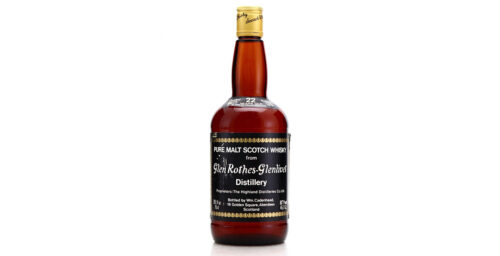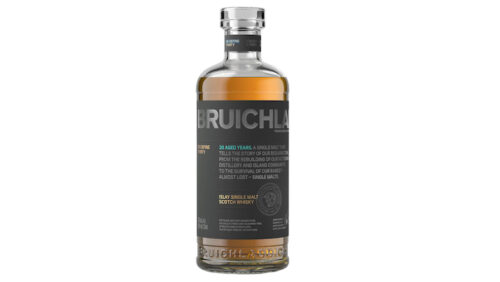Swirling whiskey is something many of us (myself included) do when we taste. It feels right, and it makes you look like you know what you’re doing. But is this step really necessary? What, exactly, does it add to the tasting experience?
Why swirl?
Most guides to tasting whiskey will tell you to swirl; some suggest doing it at several points in the process. One reason for swirling is to let you get a look at a whiskey’s legs—the drips that form as the liquid recedes from the sides of the glass. Legs can tell you a few things, if you know what you’re looking for: since alcohol is more viscous than water, heavier, slower-moving legs indicate higher ABV. Heavier legs are also said to indicate an older whiskey.

The other reason to give your whiskey a spin before you sniff it is to promote evaporation, which sends aromatic chemicals towards your nose. Evaporation is crucial, since without it, you wouldn’t be able to smell whiskey at all. On the other hand, it does occur without your help; a quick swirl merely speeds the process along.
The makers of the Norlan glass consider it an important enough step that they designed their product with a ridged interior bowl, which increases the surface area of the whiskey as you swirl. The NEAT glass, too, is designed for swirling.
Is it really necessary?
There’s one downside to swirling, though, one you’ve certainly noticed if you’ve ever given a glass of whiskey a healthy sniff. You can’t get aromatic compounds to evaporate without also encouraging alcohol to evaporate, which is why you’ll get a harsh ethanol burn if you inhale those aromatic vapors too sharply. On the other hand, that’s more a side effect of the way you sniff than whether or not you swirl; just be more delicate than you would with a glass of wine and you’ll be fine.
A comparison to wine is telling here. Wine changes substantially and quite quickly (within minutes or hours) when exposed to air, which is why experts recommend decanting, at least with certain wines. Spirits oxidize much more slowly than wine. That means that while the swirl encourages those aromatic compounds to evaporate, that’s about all it does—you’re not substantially changing the character of the whiskey by exposing it to more air.
In short, swirling is helpful, but not crucial—except when it comes to impressing people with your whiskey acumen.



